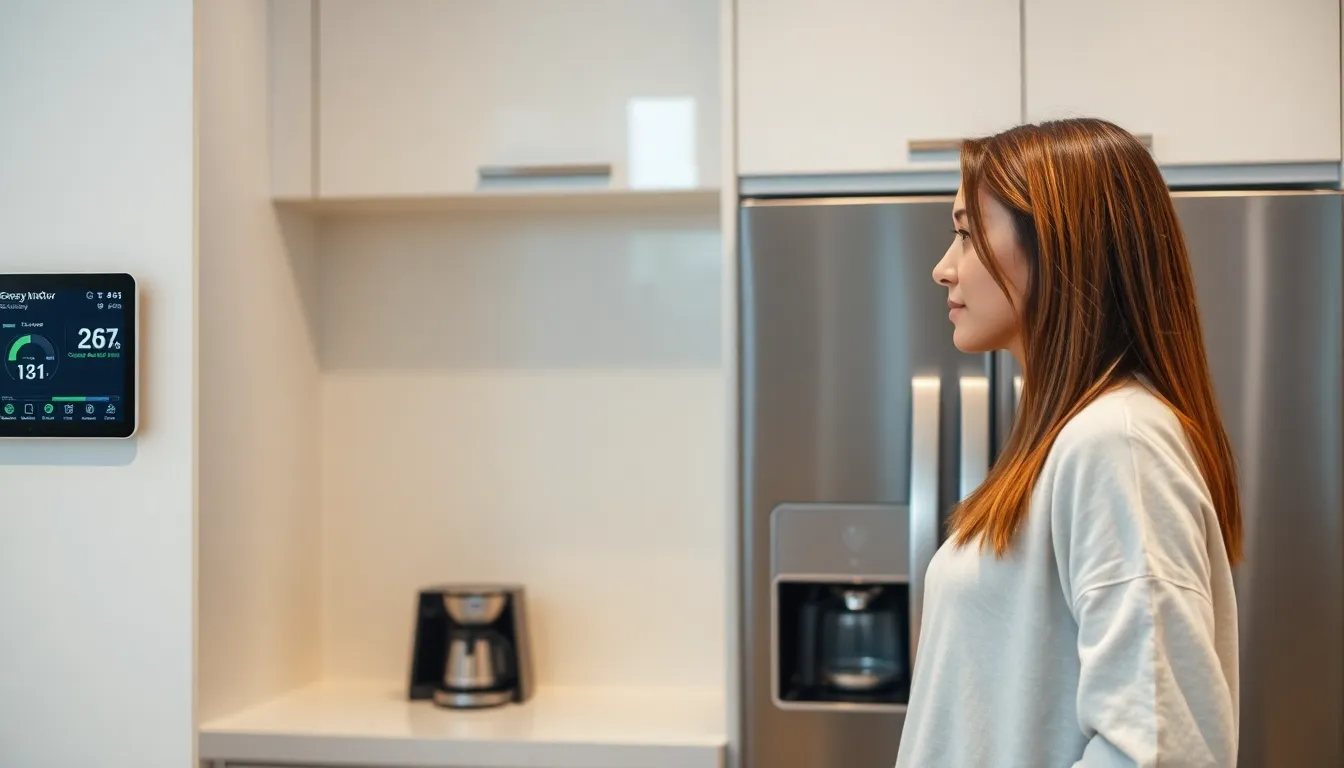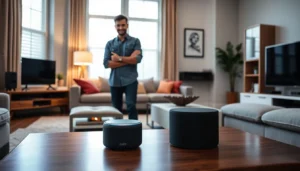Table of Contents
ToggleIn a world where appliances seem to have minds of their own, keeping track of their usage can feel like trying to herd cats. From the fridge that hums a little too loudly to the washing machine that occasionally sounds like a rock concert, understanding how these appliances impact energy bills and efficiency is crucial. Enter appliance usage tracking—your new best friend in the battle against high utility costs and unexpected breakdowns.
Overview of Appliance Usage Tracking
Appliance usage tracking provides a systematic way to monitor the performance and energy consumption of household devices. Homeowners benefit from real-time data on energy usage, enabling them to pinpoint inefficiencies. By analyzing usage patterns, individuals can make informed decisions about optimizing appliance operation.
Smart technology enhances appliance usage tracking through energy monitors and smart plugs. These devices collect detailed information, allowing homeowners to view specific consumption data over time. Users can access insights via apps, simplifying the process of identifying which appliances contribute most to energy costs.
Cost savings emerge as a significant advantage of tracking appliance usage. Homeowners often reduce energy bills by 10% to 30% after implementing monitoring solutions. Specific actions include scheduling high-energy appliances during off-peak hours based on collected data.
Environmental impacts also play a role in appliance usage tracking. By becoming more aware of energy consumption, homeowners contribute to sustainability efforts. Tracking promotes energy-efficient habits, reducing overall waste and supporting the use of renewable energy sources.
Data visualization tools assist in interpreting usage information clearly. These tools display trends and provide actionable insights through graphs and charts. With easily digestible information, users can adjust their behavior to achieve greater energy efficiency.
Integrating appliance usage tracking into daily routines fosters informed decision-making. As individuals embrace technology, they actively participate in creating a more sustainable living environment. Consequently, appliance usage tracking emerges as an essential strategy in managing both expenses and environmental impact effectively.
Benefits of Appliance Usage Tracking

Appliance usage tracking offers homeowners a variety of advantages. Among these benefits, energy efficiency and cost savings stand out.
Energy Efficiency
Tracking appliances promotes energy-efficient usage patterns. Homeowners identify excessive energy consumption through real-time data, allowing for informed adjustments. Smart devices relay detailed insights, helping users understand when appliances draw the most power. Adopting energy-efficient behaviors often leads to reduced overall usage. In many cases, implementing these changes can result in a significant decrease in household energy waste. Studies indicate that energy monitoring can enhance efficiency, promoting a greener home.
Cost Savings
Significant cost savings arise from effective appliance usage tracking. By monitoring energy consumption, homeowners can pinpoint unnecessary expenses. Optimizing appliance operation based on tracked data often reduces energy bills by 10% to 30%. Smart plugs and energy monitors visualize usage trends, enabling users to detect high-consumption devices. Furthermore, targeted action results in timely maintenance which can prevent costly breakdowns. Annual financial gains from reduced energy bills make tracking a valuable investment.
Common Methods of Tracking Appliance Usage
Various methods exist for tracking appliance usage effectively, allowing homeowners to monitor energy consumption and enhance efficiency.
Smart Meters
Smart meters enable real-time energy consumption tracking. They provide detailed data on how much energy appliances use throughout the day. Homeowners benefit from this information by identifying peak usage times. Utilities often offer incentives for using smart meters, encouraging energy-efficient patterns. Reports generated from smart meters help users understand their overall energy usage, making it easier to pinpoint areas for improvement. According to the U.S. Department of Energy, homes with smart meters can achieve up to 20% savings on energy costs.
IoT Devices
IoT devices play a crucial role in modern appliance usage tracking. These interconnected devices can control and monitor various household appliances. Smart plugs and smart thermostats provide insights into energy usage. By connecting to Wi-Fi, they allow homeowners to access consumption data remotely. Alerts can notify users about unusually high consumption, prompting timely interventions before excessive costs accrue. Research indicates that homeowners who utilize IoT devices can see energy savings between 10% and 30%.
Mobile Apps
Mobile apps enhance the tracking experience by offering user-friendly interfaces. Many apps sync with smart meters and IoT devices, consolidating data in one place. Homeowners can visualize their energy consumption patterns through graphical representations. Notifications can remind users to turn off appliances when not in use. Over time, these insights help individuals adapt their habits to become more energy-efficient. Studies show that consistent use of tracking apps correlates with significant reductions in overall appliance energy usage, enhancing savings dramatically.
Challenges of Appliance Usage Tracking
Tracking appliance usage poses several challenges for homeowners. Data privacy concerns arise as smart devices gather detailed consumption information. Users often worry about what happens to their data and who has access to it. Ensuring data is securely stored and utilized only for intended purposes is crucial.
Reliability of data serves as another significant challenge. Accurate monitoring depends on the quality of the devices used. If a smart meter or appliance tracker fails, it may lead to misleading consumption data. Homeowners can find it frustrating if they cannot trust the information provided. Regular maintenance of these devices is essential to maintain their functionality and accuracy. Investing in high-quality tracking equipment contributes to more reliable data gathering and better insights into energy usage trends.
Appliance usage tracking stands as a crucial strategy for homeowners aiming to enhance energy efficiency and reduce costs. By leveraging smart technology and data visualization tools, they can gain insights into their appliances’ performance and consumption patterns. This proactive approach not only leads to significant savings but also fosters sustainable living practices.
As homeowners embrace these tracking methods, they can make informed decisions that optimize their energy usage. While challenges like data privacy and device reliability exist, the benefits of effective tracking far outweigh the drawbacks. Ultimately, integrating appliance usage tracking into daily routines empowers homeowners to take control of their energy consumption and contribute positively to the environment.




